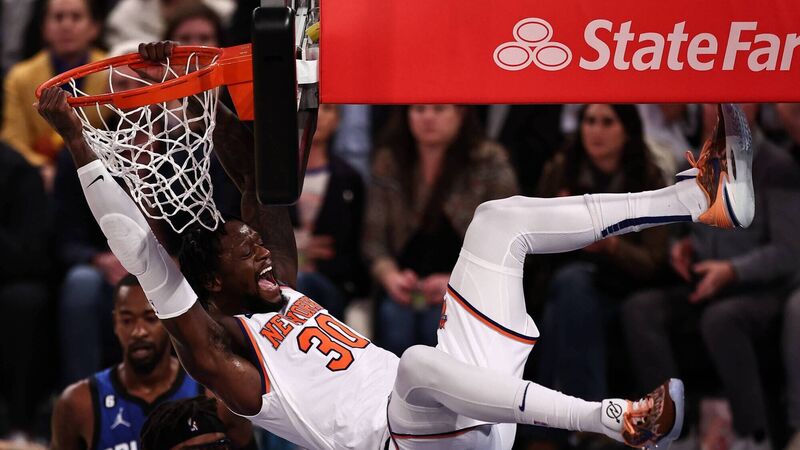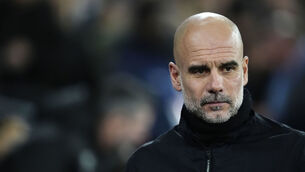John Riordan: The odd Knicks legacy of Ned Irish

HANGING TOUGH: Julius Randle #30 of the New York Knicks dunks the ball during the second quarter of the game against the Orlando Magic at Madison Square Garden on October 24, 2022 in New York City. Pic: Dustin Satloff/Getty Images
Before The Garden was The Garden, the third of four Madison Square Gardens was situated for just over four decades on the corner of Manhattan’s Eighth Avenue and West 50th Street.
As with any large metropolis, you can always suspect that something iconic which once stood here was demolished because your gaze can barely register the boring brick structures which replaced it, containing chains and bland apartments.









